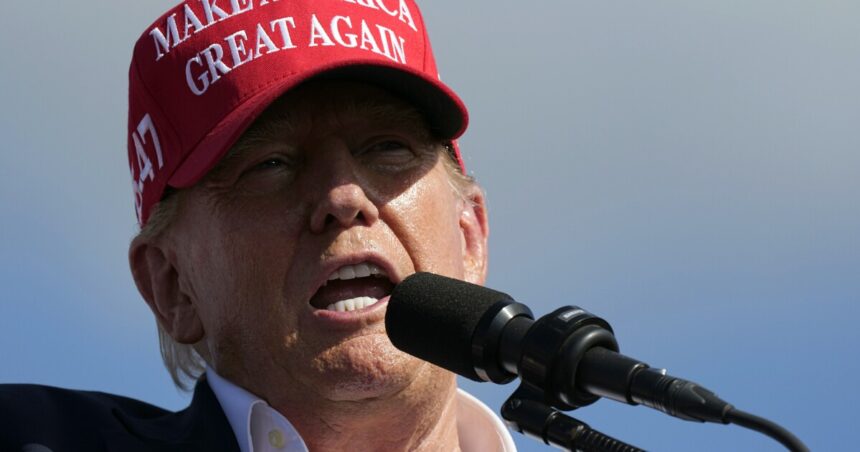Prosecutors in the New York hush money case involving former President Donald Trump have expressed their willingness to delay his sentencing hearing scheduled for July 11, following a Supreme Court ruling that granted Trump some immunity from prosecution.
According to a letter filed by prosecutors from the Manhattan district attorney’s office on Tuesday, they are open to postponing Trump’s sentencing for up to two weeks.
“Although we believe the case lacks merit, we do not oppose his request,” stated prosecutors in the letter obtained by The Associated Press.
Related story: Supreme Court sends Trump case back to lower court, giving former president limited immunity
The filing comes shortly after Trump’s legal team requested Judge Juan Merchan to set aside his conviction and delay the sentencing, citing the recent Supreme Court ruling that provides presidents with at least presumptive immunity from prosecution for official acts carried out while in office. The Supreme Court decision, in a 6-3 vote, affirmed that a former president has absolute immunity for core constitutional powers.
It is uncertain whether Judge Merchan will grant Trump’s request for a delay, but if approved, the sentencing hearing could be pushed beyond the Republican National Convention on July 15 in Milwaukee. This would mean that Trump could potentially become the official GOP presidential nominee before learning the outcome of the New York hush money case.
Related story: Big questions that remain after Trump’s guilty verdict
In May, a jury found former President Donald Trump guilty on all 34 counts of falsifying business records, making him the first American president to be convicted of a crime. Prosecutors argued during the trial that Trump falsified records to hide damaging stories, including an alleged affair with porn star Stormy Daniels, before the 2016 election.
Trump could face up to four years in prison for the 34 class E felonies, but legal experts think Judge Merchan might opt for alternatives such as home confinement, probation, community service, or fines, considering Trump’s lack of prior criminal record.





